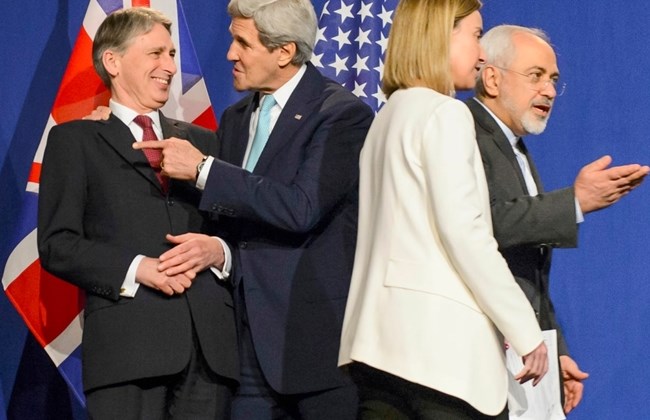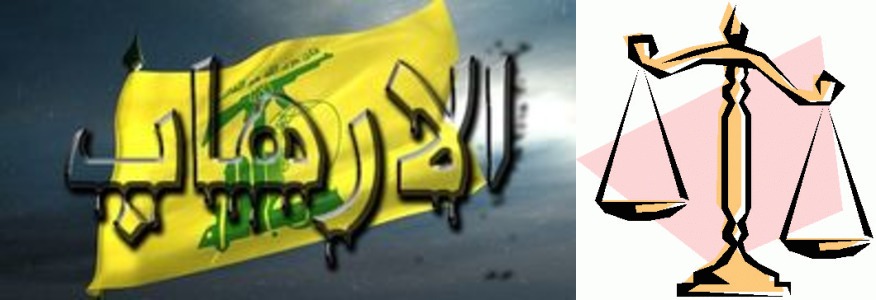Home تعليقات ومقالات مميزة عبد الرحمن الراشد/مشكلتنا مع اتفاق لوزان وإيران/Abdulrahman al-Rashed/The problem with Lausanne’s deal...
Iranian Mullahs’ aggressive expansionism scheme is an existential threat to all the Arab countries
Elias Bejjani: Below is a worth Reading piece By Abdulrahman al-Rashed in both Arabic and English. It tells the blind and deaf Obama and other world leaders what are the Iranian actual dangers.
The problem with Lausanne’s deal and Iran
Abdulrahman al-Rashed/Al Arabiya/Friday, 17 April 2015
The nuclear deal reached in Lausanne between Iran and the West has stirred a big controversy. The debate is building up in the lead up to the forthcoming Camp David summit that U.S. President Barack Obama has decided to hold with the leaders of the Arab Gulf states to discuss the deal and its repercussions.
The last ‘preacher’ on the deal was Vali Nasr, an expert in the region’s affairs, a writer, political science professor, and adviser to a number of official departments in Washington. He stated in the “New York Times” that he does not know why Arabs are unhappy with the deal between Iran and the West, as he believes it is in favor of the Arabs.
He thinks that the Lausanne deal will incorporate Iran into the global economy, and this alone would automatically exert restrictions on Tehran’s government’s policy on the region and on its behavior.
Nasr criticized Arab countries and said they were still adopting a reverse logic, because they believed Iran was the main component responsible for their countries’ instability, and that Iran’s aggressiveness was inoperable.
He also believes that Arab countries should seize the opportunity that is looming on the horizon and take advantage of Iran’s commitment, in order to work on the development of their economies, which actually represents a real challenge. His opinions echo comments Obama made in an interview with Thomas Friedman, in which he said the Arabs were blaming their neighbor Iran, and yet they were at risk from the inside. ‘State of hopelessness’ Are we being paranoid about Iran, or is Mr Nasr just a used-car salesman who thinks that he is able to advertise what the U.S. administration has failed to promote?
First, we are not in a state of hopelessness, rather a state of anger. Arabs had hoped Obama would not only care about discontinuing Iran’s nuclear capabilities or keep mum about its policy and aggressive behavior. Iran is more like North Korea, a state that believes in force and confrontation and rely on maneuvering. This is not paranoia but a long record of Iranian sponsorship of violence in the region. Iran is not Cuba, an old communist country, whose utmost ambitions today are to sell cigars and be a touristic destination for the Americans, and whose danger wiped out with the collapse of the Soviet Union in the early nineties. In fact, Iran is more like North Korea, a state that believes in force and confrontation and rely on maneuvering. This is not paranoia but a long record of Iranian sponsorship of violence in the region.
‘Ethnic wars’
Iranian officials are proud about the existence of militias. Iranians are involved in the fighting in Syria and Iraq, and Iran has sponsored and supported the rebels in Yemen for years, and U.S. Secretary of State John Kerry has confirmed that. I am surprised that a professor like Nasr would say that Yemen has been suffering from ethnic wars for decades, and that therefore there is no blame on Iran. This is not true. He might say that about Somalia or Lebanon, but Sunnis and Yazidis were living peacefully in Yemen. Yemen’s tribal feuds were limited and over the years, there were only clashes between Houthis and the central government. As for the Sunnis and Yazidis, they did not take part in the conflicts prior to last year. The problem with Iran is not sectarian, even though it publicly supports and funds Shiite extremism such as the Lebanese “Hezbollah”. Conversely, its strategies are also to fund different armed groups such as the Sunni “Islamic Jihad” and Palestinian “Hamas” as well.
Sabotaging the Middle East
We cannot be accused of paranoia, because Iran holds a 30-year-old record of sabotaging the Middle East. The irony is that Iran’s hostile activities have dramatically increased during its recent negotiations with the “P5+1” group of nations. Nasr suggests that the Gulf countries should benefit from years-long nuclear-freeze and take heed to develop their economies, rather than engaging in a fight against Iran. Will he be able to enlighten us on how to do so? The deal only prevents Iran from developing nuclear arms for at least 10 years. But it does not restrict Iran from waging an assault. A visit to the two shores of the Gulf shows the nature of the two regimes; quite similar to the border landmarks between North and South Korea. On the east bank, where Iran is, there are deserted beaches, desolate mountains, and huge military camps. Whereas on the west bank – the six Gulf States – there are thriving modern capitals, massive industrial petrochemical complexes, oil refineries and many industrial cities. Iran does not have anything to lose if the Gulf countries waged a war against it, as they spent most of their savings on the development of military capabilities. So what exactly does Vali Nasr want the Arab States to do, especially when President Obama decides to free Iran from the cage? Should the Gulf countries blindly trust this deal?
مشكلتنا مع اتفاق لوزان وإيران
عبد الرحمن الراشد/الشرق الأوسط/17 نيسان/15
نحن في وسط جدل كبير بسبب الاتفاق على البرنامج النووي الإيراني مع الغرب، واستباقًا لقمة كامب ديفيد، التي قرر الرئيس الأميركي باراك أوباما عقدها مع قادة دول الخليج العربية حول الاتفاق وتبعاته، فالنقاش يزداد حدة.
آخر المبشرين به هو فالي نصر، خبير في شؤون المنطقة، وكاتب، وأستاذ علوم سياسية، ومستشار لعدد من الدوائر الرسمية في واشنطن. كتب في «نيويورك تايمز» مستغربًا لماذا العرب غير راضين عن الاتفاق الإيراني – الغربي الذي يراه يَصب في مصلحتهم. يؤمن بأن اتفاق لوزان سيدمج إيران في الاقتصاد العالمي، وهذا وحده سيقيد سياسة حكومة طهران في المنطقة وسلوكها. يقول نصر منتقدًا إن الدول العربية حتى الآن تعمل بمنطق معاكس؛ لأنها تعتقد أن إيران المسؤولة الرئيسية عن عدم استقرار بلدانهم، وأن عدوانيتها غير قابلة للعلاج. ويرى أن الدول العربية تلوح أمامها فرصة عظيمة للتفرغ لتنمية اقتصاداتها، التي تمثل التحدي الحقيقي لها، مستفيدة من التزام الإيرانيين بالاتفاق.
رأيه ترديد لما خطب به الرئيس الأميركي باراك أوباما في مقابلته مع توماس فريدمان من أن العرب يلقون بالملامة على جارتهم إيران لكن الخطر عليهم داخلي.
فهل نحن مصابون بمرض الارتياب من إيران، أم أن السيد نصر مجرد بائع سيارات مستعملة، يظن أنه قادر على أن يسوق لنا ما فشلت فيه الإدارة الأميركية؟
أولاً، لسنا في حالة جزع من الاتفاق المقبل، بل هي حالة غضب. كان العرب يتمنون ألا يهتم أوباما فقط بتعطيل قدرات إيران النووية والسكوت عن سياستها وسلوكها العدواني. إيران ليست كوبا، مجرد بلد شيوعي عجوز، كل طموحاته اليوم أن يبيع السيجار والسياحة للأميركيين، وانتهى خطره بانهيار الاتحاد السوفياتي في مطلع التسعينات. في الحقيقة إيران تشابه كوريا الشمالية، دولة تؤمن بالقوة والمواجهة وتعتمد المراوغة. هذا ليس مرض ارتياب، بل سجل طويل من تبني إيران ورعايتها العنف في المنطقة. ومسؤولو إيران يفاخرون علانية بوجود ميليشياتها، ورجالها تشارك في القتال في سوريا والعراق، وهي من رعى ودعم المتمردين الحوثيين في اليمن لسنين، وكان آخر من أكد ذلك وزير الخارجية الأميركي جون كيري نفسه. وأستغرب أن أستاذًا مثل نصر يقول إن اليمن أصلاً يعاني من حروب إثنية منذ عقود فلا تلام عليها إيران. هذا ليس صحيحًا. قد يعني الصومال أو لبنان، أما اليمن فقد ظل بلدًا تعايش فيه سنته وزيديته في سلام. نزاعاته القبلية محدودة وعلى مدى سنين لم تكن هناك اشتباكات إلا بين الحوثيين والحكومة المركزية، أما السنة والزيدية فلم يكونوا طرفًا إلا منذ العام الماضي!
المشكلة مع إيران ليست طائفية، وإن كانت تتبنى علانية وتمول التطرف الشيعي مثل «حزب الله» اللبناني، بل صلب سياستها تمويل جماعات مسلحة مختلفة حتى السنية مثل «الجهاد الإسلامي» الفلسطينية و«حماس» أيضًا.
لا يمكن أن نتهم بالارتياب وأمامنا سجل إيراني لثلاثين سنة، من رعاية الفوضى في منطقة الشرق الأوسط، والمفارقة أن نشاط إيران العدواني ازداد بشكل مضاعف خلال مفاوضاتها الأشهر الماضية مع مجموعة «5+1» الغربية.
ويقترح نصر أن تستفيد دول الخليج من سنوات التجميد النووية الإيرانية للالتفات إلى تطوير اقتصاداتها بدلا من الانخراط في مكافحة إيران، فهل يُبين لنا كيف؟
إن زيارة لضفتي الخليج تبين طبيعة النظامين، تشبه تمامًا معالم الحدود الفاصلة بين الكوريتين الشمالية والجنوبية. على الضفة الشرقية، حيث إيران، شواطئ مهجورة، وجبال مقفرة، ومعسكرات حربية كبيرة. تقابلها على الضفة الشرقية، حيث ست دول خليجية، حواضر حديثة مزدهرة، ومجمعات صناعية بتروكيماوية عملاقة، ومصافي بترول، ومدن صناعية متعددة. لا يوجد لإيران ما تخسره في حال استهدافها دول الخليج، لأنها أنفقت معظم مدخراتها على تطوير قدراتها العسكرية، فكيف بما يريده فالي نصر منها عندما يقرر الرئيس أوباما أن يحرر إيران من القفص؟ هل تضع الدول الخليجية ثقتها في الاتفاق وتنام على وسادة من ريش النعام؟
فالاتفاق محصور فقط في منعها من التسلّح النووي لعشر سنوات على الأقل، ولا يعنى بنشاطاتها العدوانية الأخرى التي هي أخطر بالنسبة للعرب. إنه مثل أن توقع دول الغرب اتفاقًا نوويًّا مع كوريا الشمالية ثم تسحب قواتها من منطقة الحدود العازلة المنزوعة من السلاح، هل يمكن أن نثق أن كوريا الشمالية لن تزحف قواتها على سيول من دون التزام؟ والتحديات مع إيران ليست فَقَط عسكرية بل أمنية أيضًا.
ما الذي كان يمكن إنجازه في مشروع الاتفاق مع إيران ولم يتم؟ أتصور أنه كان بالإمكان تضمينه شروطًا تعالج مصدر التوتر، للجميع، من بينها ضمانات تطمئن إيران إلى أنه لن يحدث عدوان عليها من إسرائيل والغرب، حيث تدعي دائمًا أنه هاجسها وهو سبب تطوير قدراتها العسكرية التقليدية وكذلك النووية. ومنح هذا الضمان لدول المنطقة العربية المحاذية لإيران، التي بدورها تعتقد أن التسلّح الإيراني هدفه دولها. وضم دول المنطقة المعنية بالتوتر مع إيران، بما في ذلك إسرائيل، لوضع اتفاق يطمئن الجميع وينزع أسباب التوتر.
وعندما تفاوضت الولايات المتحدة مع حكومة بيونغ يانغ على برنامجها النووي عمدت إلى إشراك دول المنطقة المعنية هناك، بِمَا فيها اليابان وكوريا الجنوبية، أما في الملف الإيراني فكل دول المنطقة وضعت في الظلام، وكانت تسمع عن الاتفاق أنباء مسربة في الصحافة الإسرائيلية والأميركية! فالاتفاق غامض ويعالج فقط حاجات الغرب وحده!




















